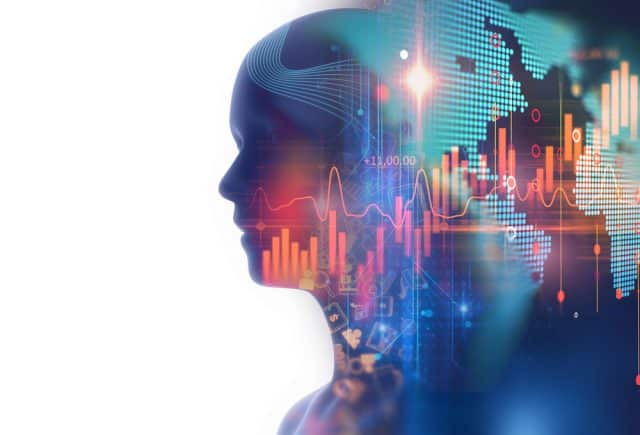How AI can help access collective memory within the enterprise [Q&A]

Many industries rely on the accumulated knowledge and experience of both middle and upper management. However, this can lead to jobs being done in a certain way simply because, 'they always have been', which in turn can lead to repeated mistakes.
Relying on this collective memory can also make it hard to access information, particularly in the new era of hybrid work.
Senthil Kumar, CITO, CTO and head of AI at Slate Technologies, which produces an AI-powered digital assistant for the construction industry, believes AI can be used to access this accumulated knowledge and improve productivity. We talked to him to find out more.
BN: How has the shift to hybrid work affected the way businesses access knowledge and how can accumulated knowledge within the business be captured?
SK: The advent of the hybrid work model means that traditional knowledge sourcing and dissemination methods need to be adaptive as well. With remote working staff, fewer in-person and informal means to share knowledge, it's beneficial to implement appropriate processes to help with the sharing.
Organizations see better outcomes when they consciously adapt to the new normal of hybrid work environments, which requires a greater emphasis on centralizing knowledge management and organizing data. They must leverage collaborative tools and host the knowledge base in a cloud frontier to provide broad and persistent access. By adopting knowledge mining tools to crawl through information across multiple sources, they can unearth relevant insights and enable smarter searches for information across multiple data sources. Success requires that organizations regulate and emphasize process documentation, periodically publish informational videos, and dedicate virtual meetings to go over process changes.
BN: Why is it important to have data from multiple sources?
SK: In an age of fast-moving and voluminous production of data, a single source of data is no longer sufficient to produce valuable insights. Data from multiple sources are often triangulated, correlated, and aggregated to funnel valuable insights. Multi-source data feeds create a better 'big picture' of the system.
Relying on a single source of data may breed inherent biases, reduce verifiability, and water down correlated insights. Data quality also suffers from singularity because there is no cross-verification potential in such data sets.
The more diverse the datasets are and the more sources we tap into for such data, the more powerful and verifiable the insights they produce are. Algorithms can find patterns of relevance across disparate data sets, closely examine relationships, and analyze and triangulate data to reinforce learned concepts to formulate better insights. With only one data source, the organization misses out on all of these benefits.
BN: How does this improve the decision-making process?
SK: Relying on a single source of data for decision support is fraught with suboptimal inferences of the dataset. When using multiple sources of data in the decision-making process, the quality of data improves by association and validation. Triangulation of information from multiple sources helps weed out noise and focus on insightful content. This in turn helps make better data-driven decisions. For example, IOT data streams from multiple sensors, supply data from ERP systems, Project data from the scheduler, and weather data may each on their own have limited meaningful connotations, but in concert they provide valuable insights..
When we bring all the data streams together -- scheduler data about a high-rise task scheduled during a period of high humidity; IoT streams' ancillary data about pressure and altitude; ERP system information about the material behavior under adverse weather conditions -- the combinatorial analysis of data from these multiple sources will produce valuable insights. This in turn helps with better decision-making as multiple data streams are analyzed and correlated.
BN: Is there a risk that AI will override valuable learned experience?
SK: I don't perceive a risk in AI overriding learned experience. AI enhances our ability to know and learn; it doesn't replace it. Certainly, there are aspects to our life and learning that will be replaced by AI. In fact, the mundane repetitive execution required for many types of learning benefits people, because it enables humans to focus more on societal and creative aspects of life.
For instance, the younger generation has largely forgotten how to tell time by looking at analog clocks, a skill that would have been valuable decades ago, but is now largely irrelevant with digital timepieces. On a similar note, reading a sundial to tell time would have been valuable before the creation of mechanical clocks. Both have been replaced by advanced and simpler ways of time management. Certainly, we lost a learning and a skill, but advanced technology negated the need for such a skill in the first place.
In a similar vein, there are beneficial aspects to what AI learns and executes, and some of the learnings are beyond the normal ability of human cognizance. The downside is too much reliance on machine cognizance without checks and balances over what the machines learn can lead to unwanted outcomes.
'Artificial Intelligence' is a branch of computational science that has graduated to 'augmented intelligence'. This augmentation of human intelligence and experiences to improves the overall productivity and quality of human life.
Image credit: whiteMocca/ Shutterstock
